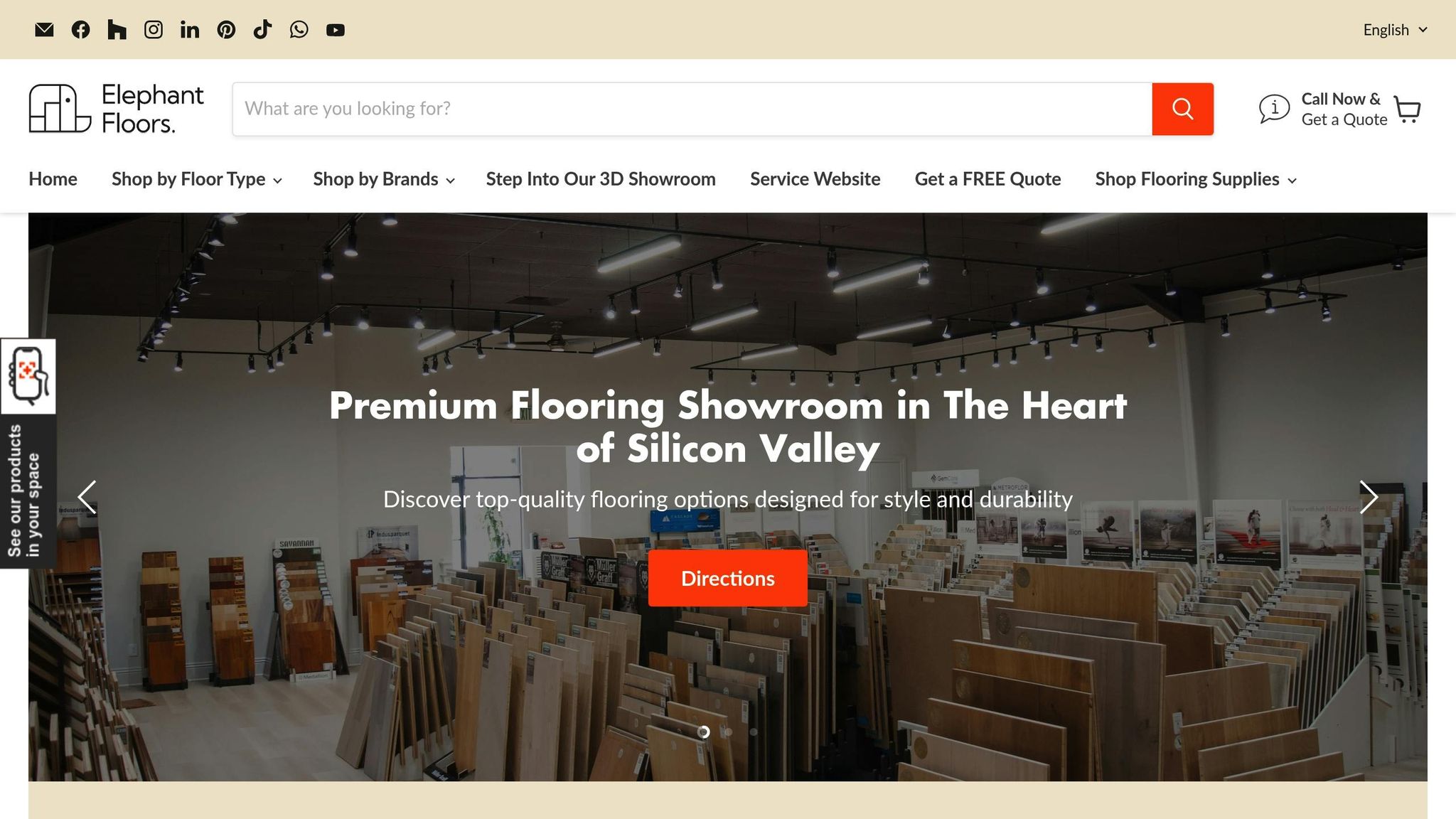Get a Quote
Get a Quote

Want to reduce allergens in your home? Start with your floors. Floors trap dust, pollen, pet dander, and mold, affecting indoor air quality. Here’s how to maintain allergy-friendly floors year-round:
Proper cleaning routines and smart flooring choices can make your home healthier and more comfortable. Keep reading for detailed seasonal tips and product recommendations.
When it comes to allergy relief, flooring plays a big role. The right choice can help reduce allergens and make cleaning easier. Here's how different flooring types can help tackle allergens.
Hardwood floors are a great option because their smooth, sealed surfaces make it harder for dust, pollen, and pet dander to stick around. High-end selections like Medieval Floors' Chaumont ($73.04/sqft) and Allier ($64.76/sqft) not only look great but also make cleaning more effective thanks to their sealed finishes.
Vinyl and laminate flooring provide similar benefits to hardwood but come with added perks like moisture resistance and lower costs. Vellichor's SPC collection is a standout, offering options such as:
Low-VOC (volatile organic compound) flooring can improve indoor air quality by reducing harmful chemical emissions. To maximize the benefits, select low-VOC or VOC-free materials, and pair them with proper ventilation and consistent cleaning routines.
Each season brings its own challenges for keeping allergens at bay. Here’s how to adjust your floor care routine throughout the year:
Spring means pollen - and lots of it. To keep allergens under control, vacuum often using a HEPA-filter vacuum. Pair that with microfiber mops, which are great for trapping dust and pollen. For hardwood and vinyl floors, a slightly damp microfiber mop works well to pick up allergens without damaging the surface.
Warm, humid summer days can lead to mold, which can aggravate allergies. Use a hygrometer to keep an eye on indoor humidity levels and run a dehumidifier if needed. Clean up spills as soon as they happen, and make sure areas like bathrooms and kitchens stay well-ventilated to avoid moisture buildup.
Keeping up with regular floor care helps minimize allergens in your home.
For hardwood and vinyl floors, follow this schedule:
Maintain indoor humidity levels between 30-50% to reduce airborne allergens. A hygrometer can help you track this.
Pair your cleaning routine with thoughtful rug choices to further cut down on allergens.
Wall-to-wall carpeting often traps allergens, but washable rugs are a more practical option. Look for low-pile rugs made from natural fibers like cotton or bamboo, which are easier to maintain and less likely to hold allergens compared to synthetic materials.
For better allergen control:
Place smaller, washable rugs in busy areas to catch dirt before it spreads. Indoor/outdoor rugs are a great choice for entryways since they’re durable and easy to clean.

Elephant Floors in Sunnyvale specializes in flooring options designed to help manage allergies. Here's a quick rundown of their allergy-conscious flooring choices:
| Flooring Type | Allergy-Friendly Features | Recommended Brands |
|---|---|---|
| Hardwood | Sealed surfaces to minimize allergen buildup | Gaia Flooring, Medieval Floors |
| Vinyl | Waterproof and moisture-resistant | Vellichor, LAGO flooring |
| Laminate | Easy-to-clean and moisture-resistant | Pravada Floors, Triangulo |
Their installation team is known for its precision and cleanliness, using dust-containment methods to seal edges and transitions. With a 4.8/5 rating from 60 reviews, customers consistently praise their work. Jim S. shared his experience:
"Great experience. Very fast communication. Repaired my water damaged flooring within days of contacting them. The contractors were very professional, friendly and left our home spotless after completion of work. Highly recommend them for all your flooring needs." - Jim S
Stop by their Sunnyvale showroom to explore free samples and get expert advice on finding flooring that combines style with allergy control.
Managing allergies effectively starts with choosing the right flooring and maintaining it properly. Here's a summary of the main strategies:
Proper installation, including sealing edges and transitions, plays a big role in controlling allergens. Hiring professionals ensures gaps and seams are sealed correctly, preventing allergen buildup.
Regular care not only keeps allergens in check but also ensures a healthier living space.
Leave a comment